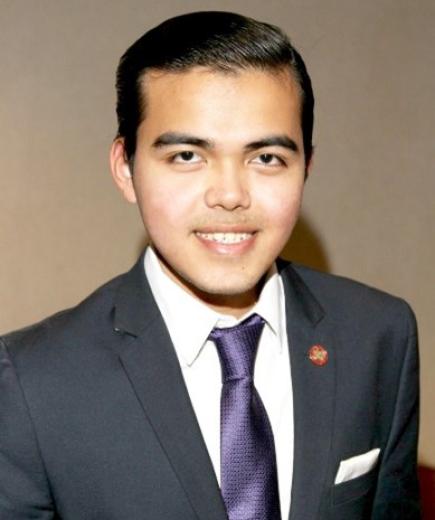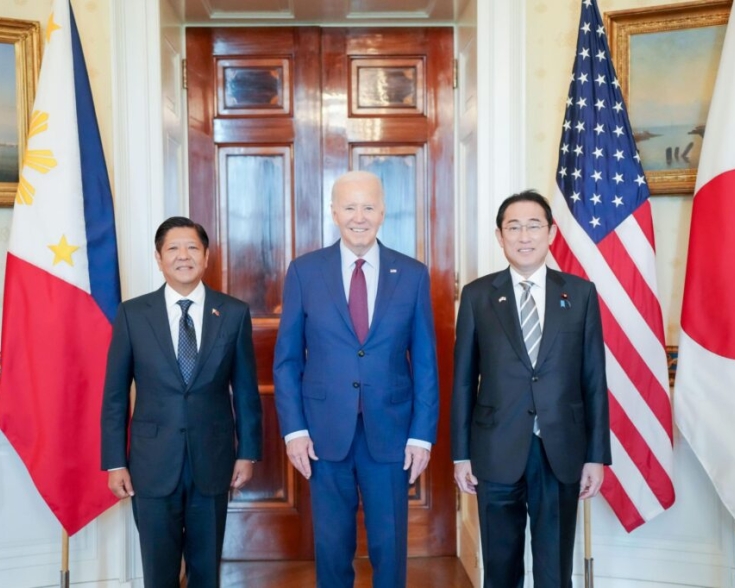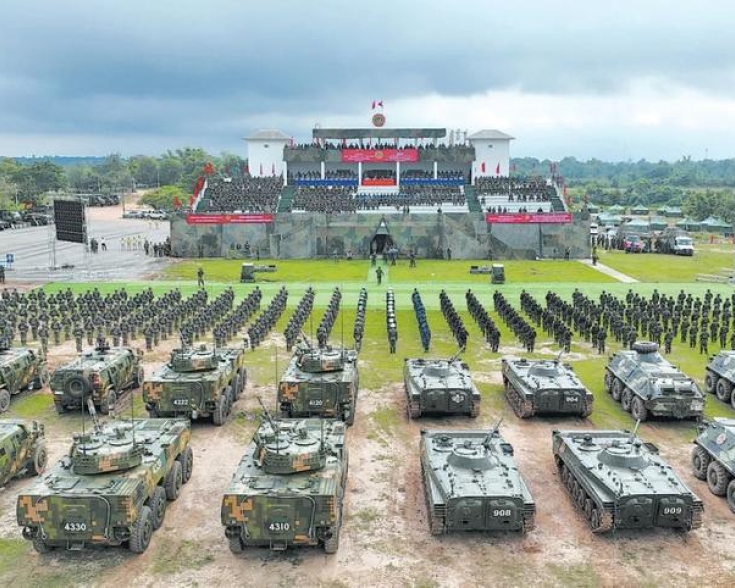Third Anniversary of Military Coup: State of Emergency Extension and Cabinet Reshuffle

February 1, 2024 marks the third anniversary of the military coup in Myanmar. The State Administration Council (SAC)’s National Defense and Security Council extended the state of emergency to another six months, citing "abnormal situations'' as with the previous round. The SAC also conducted a reshuffle of its cabinet members and reconstituted the military government (the full list can be found on page 2 of the newspaper). It allowed the retirement of the following individuals, citing health conditions:
U Thein Soe: Chairman of the Union Election Commission (UEC), who previously served in the same capacity in 2010. He then retired and was reinstated to the same position following the military coup. During his tenure, he was responsible for spearheading the amendment of the Political Parties Registration Law, which ultimately led to the dissolution of the National League for Democracy (NLD) and 40 other political parties.
U Than Win: Member of the Union Civil Service Board.
Dr. Kyaw Tun: Member of the SAC Central Advisory Board. He previously served as Chief Minister of Shan State.
U Aung Zaw Aye: Chief Minister of Shan State.
The following new appointments have been made for the vacant roles:
U Ko Ko: Assumes the role of Chairman of the UEC. He most recently served as Minister of Religious Affairs and Culture for the SAC.
Lieutenant General Aung Aung: Assumes the role of Chief Minister of Shan State.
U Kyaw Myo Htut: Appointed as a member of the Union Civil Service Board. He most recently served as Deputy Minister of Foreign Affairs and prior to that, served as Myanmar Ambassador to the United States.
U Myo Hlaing: Appointed as a member of the Union Election Commission.
U Htein Lin: Assumes the role of Deputy Minister for Sports and Youth Affairs.
On the military front, to the surprise of observers, the Commander of the Lashio-based Northeastern Regional Military Command, Major General Naing Naing Oo who faced significant losses in Northern Shan State during Operation 1027, was promoted to Lieutenant-General and appointed as the Head of Bureau of Special Operations No. 2. Major-General Naing Naing Oo graduated from the same batch as Lieutenant-General Kyaw Swar Lin who is currently serving as the Quartermaster General and Chief of Staff (Army).
Third Anniversary of Military Coup: International Response
On the international stage, the anniversary was met with sanctions by foreign governments. The U.S. Department of the Treasury’s Office of Foreign Assets Control (OFAC) imposed sanctions against the following entities:
Shwe Byain Phyu Group of Companies (SBPG) which imports and distributes petroleum for the Myanmar military through “a profit-sharing partnership” with the Union of Myanmar Economic Holdings Limited (UMEHL), a sanctioned entity.
Myanma Five Star Line Company Limited, responsible for shipping materials utilized in weapon production for the military’s Directorate of Defense Industries.
Individuals sanctioned are Thein Win Zaw, the founder of Shwe Byain Phyu Group; his wife, Tin Latt Min; and their two adult children, Theint Win Htet and Win Paing Kyaw.
The UK also announced sanctions against Mining Enterprises 1 and 2 for serving as revenue sources of the military and Light Infantry Division 77 and 101 for their brutal campaigns against civilians.
Additional sanctions were also imposed by the Australian Government on Myanma Foreign Trade Bank and Myanma Investment and Commercial Bank, previously sanctioned by the US on June 21, 2022. Following the US’s sanctions that year, Singapore's United Overseas Bank severed business ties with Myanmar banks, and Bangladesh's Sonali Bank froze the accounts of these two banks.
Furthermore, three entities—Asia Sun Group, Asia Sun Trading Co Ltd, and Cargo Link Petroleum Logistics Co Ltd—have been subjected to sanctions by the Australian Government. These targeted measures against Myanma Foreign Trade Bank and Myanma Investment and Commercial Bank follow the call for sanctions by Australian Economist and former economic policy advisor to Daw Aung San Suu Kyi, Sean Turnell, made in September last year.
Sanctions against Asia Sun Group, Asia Sun Trading Co Ltd, and Cargo Link Petroleum Logistics Co Ltd which are responsible for jet fuel supplies to Myanmar come at a time when the Myanmar military has been facing challenges on multiple fronts, including difficulties in securing spare parts, and consistent losses of aircraft (four in January 2024 alone).
The High Representative on behalf of the European Union, and the Foreign Ministers of Australia, Canada, New Zealand, Norway, the Republic of Korea, Switzerland, the United Kingdom, and the United States issued a joint statement, condemning the ongoing atrocities and human rights violations perpetrated by the military regime “in the strongest possible terms”.
They also “strongly encourage” ASEAN’s effort in addressing the crisis, and expressed appreciation towards “constructive efforts” of the ASEAN Chairs and Special Envoys. They reiterated ongoing support towards United Nations (UN) Security Council resolution 2669and urged the UN for “the timely appointment of a Special Envoy and a Resident Coordinator”. The UN Secretary-General António Guterres also “condemns all forms of violence and calls for the protection of civilians and cessation of hostilities”.
Joint Position statement issued by the National Unity Government and EROs
On January 31, the National Unity Government (NUG) and its three allied Ethnic Revolutionary Organizations (KNU, KNPP, and CNF) issued a “Joint Position Statement” which outlines six objectives, among them the termination of the "involvement of the armed forces in politics" and the assurance that "all armed forces operate solely under the command of a civilian government."
The statement also mentions several action plans, including the possibility of negotiations with the “responsible leadership” of the military under conditions that it adheres to its six objectives, the establishment of a “Transitional National Unity Government (T-NUG)”, and the enactment of a “transitional federal democratic constitution” following the abolition of the military, and drafting and implementing “a federal democratic constitution”. It also expresses its commitment to constructive engagement with ASEAN and the UN for “viable solutions” in Myanmar.
Despite its ambition, the statement loses weight, especially given the absence of KIA, a major ally of the NUG and Three Brotherhood Alliance (MNDAA, TNLA, and AA) in the signatories. Looking ahead, the formation of a planned federal constitution is filled with challenges. The ongoing dispute between the Chinland Council and the Interim Chin National Consultative Council (ICNCC) comprised of NLD lawmakers and politicians over the establishment of the "Chinland Government" illustrates the complexities.
There also remains uncertainty about the role of the Three-Brotherhood Alliance, which has already consolidated their respective territories under Operation 1027 in the NUG's vision of a "federal union." Lastly, the success of future establishment of the “federal union” is contingent upon reconciliation not only with ethnic armed actors but also with Bamar-ethnic armed groups operating outside the NUG’s chain of command and holding differing ideologies, such as the aspiration for the formation of a “Bamar State” by the Bamar People's Liberation Army (BPLA).
U.S. issues Supplementary Business Advisory for Myanmar
On January 26, the U.S. Departments of State, the Treasury, Commerce, Homeland Security, Labor and the U.S. Trade Representative issued a business advisory on the heightened risks of doing business in Myanmar. The advisory is described as “explanatory” and lacks the “force of law”.
The following are sectors and activities of concern, as per the advisory:
Sectors
Rare earth elements
Base metals and gold;
Timber; and
Aviation services, components, and fuel.
Activities
Potential diversion to military end uses and end users;
Financial and related services to state-owned banks; and
Ongoing abuses of Burmese workers' internationally recognized labor rights.
The advisory cautions businesses against sourcing materials from the mentioned sectors if there is a link to military entities and are advised to remain vigilant for mislabeling of origins. Additionally, the advisory warns of the risk of diversion, particularly for companies conducting business transactions through Singapore and Thailand.
Moreover, the advisory recommends consulting a list of documents for further guidance, including the:
- UN Guiding Principles on Business and Human Rights;
- UN Development Programme’s Heightened Human Rights Due Diligence for Business in Conflict-Affected Contexts: A Guide;
- OECD Guidelines for Multinational Enterprises;
- International Labour Organization (ILO) publication, “Combating Forced Labour: A Handbook for Employers and Business,”;
- the Office of the High Commissioner for Human Rights guide on “The Corporate Responsibility to Respect Human Rights”; and
- OECD Due Diligence Guidance for Responsible Supply Chains of Minerals from Conflict-Affected and High-Risk Areas.
Please contact Jack Myint at jmyint@usasean.org with any questions or developments regarding Myanmar.







